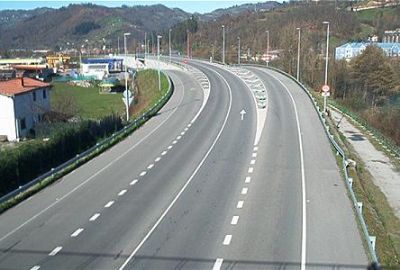Sin categoría

A team of eight evaluators has traveled the Spanish roads taking data of its state of conservation, the Spanish Association of the Road (AEC) presented on Thursday July 12 the results of its Study on Conservation Investment Needs 2017-2018.
The study that was made for the first time in 1985 notes the state in which they are located in the road networks and quantifies the replacement needs of its most significant elements: road signs, vertical and horizontal signs, safety barriers, beacons and lighting. The technicians have covered, examined and qualified some 3,000 sections of road, each measuring 100 meters, selected at random from both the State Roads Network and the Network dependent on the Autonomous Communities and Provincial Councils.
In total, 3 million square meters of pavement, 3,000 vertical code signs, 900 kilometers of road markings, 270 kilometers of metal barriers and 25,000 beaconing elements have been inspected. In the study, it remains latent that one of every thirteen kilometers of the Spanish road network presents significant deteriorations in more than 50% of the surface of the pavement, accumulating potholes, ruts and longitudinal and transversal cracks.
In general terms, the study reveals how the lack of conservation is taking its toll on the Spanish road infrastructures, a heritage valued at 145,000 million euros, and that, as of 2009, has been abandoned to its fate victim of the successive and repeated adjustments in public budgets. Turning this situation around requires a minimum investment of 7,054 million euros, an amount in which the AEC figures the deficit that accumulates the maintenance of all road infrastructure in the country and that is distributed to the State and Autonomous networks, as follows: 211 million in the network managed by the State and 4,843 million in which the autonomous and provincial governments manage.


